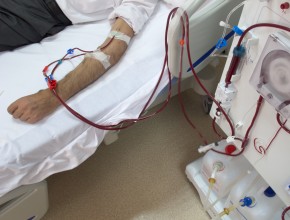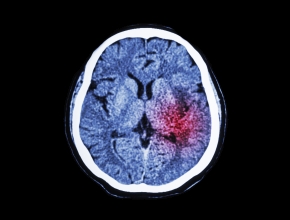Iron supplementation in restless legs syndrome
Iron supplementation may help patients with restless legs syndrome (RLS).
RLS is a common complaint of uncomfortable compulsions to move the legs, especially at evening and at night, interfering with sleep.
In this Cochrane meta-analysis, the authors examined the effect of iron supplementation in RLS patients combining the results of 10 studies. Treatment was delivered intravenously or orally (3 studies) and given to patients with reduced iron stores (4 studies) or to an undifferentiated population.
Nine studies compared iron with placebo. On a scale measuring the severity of symptoms, ranging from 0 to 40 points, iron supplementation improved the severity by 3.8 points on average (standardized mean difference, 0.74), indicating a likely clinically important difference. The effects did not differ depending on the route of iron delivery or the iron stores (populations with decreased iron stores vs groups of undifferentiated patients). The effect may be larger in patients on dialysis (2 studies). One study compared iron supplementation with the dopamine agonist pramipexole and found no difference.
In conclusion, iron supplementation probably improves RLS severity.
Lack of association between MMR vaccination and autism
Omer SB, Yildirim I. Further Evidence of MMR Vaccine Safety: Scientific and Communications Considerations. Ann Intern Med. 2019 Mar 5. doi: 10.7326/M19-0596. [Epub ahead of print] PubMed PMID: 30831577.
The MMR Vaccine Is Not Associated With Risk for Autism. Ann Intern Med. 2019 Mar 5. doi: 10.7326/P19-0002. [Epub ahead of print] PubMed PMID: 30831599.
This Danish population registry analysis adds support to the conclusion that there is no association between measles-mumps-rubella (MMR) vaccination and autism.
This report examined a Danish database representing a cohort of over 600,000 children born between 1999 and 2010. Information on MMR vaccination, diagnoses of autism, sibling history of autism, and autism risk factors were examined. With over 6500 children diagnosed with autism (130/100,000 patient-years), the hazard ratio (HR) among the vaccinated children was 0.93 (95% CI, 0.85-1.02).
The authors of the study and of the accompanying editorial conclude that MMR vaccination does not increase the risk for autism development. A summary for parents is included.
Clopidogrel and the risk of bleeding after polypectomy
Performing colonoscopy with polypectomy in patients receiving clopidogrel carries a relatively small increased risk of serious bleeding.
In this study over 200 patients taking clopidogrel regularly (the majority receiving also acetylsalicylic acid [ASA]) were randomized to receive clopidogrel or placebo during the 7-day period before the procedure. Patients’ own clopidogrel was interrupted and ASA, if used before, was continued.
The primary event, defined as bleeding after polypectomy that required hospitalization or intervention for up to 30 days after colonoscopy, occurred in 4 patients in each group (3.8% among 106 patients on clopidogrel and 3.6% among 110 patients on placebo). Immediate bleeding after polypectomy occurred in 9 patients on clopidogrel and 6 on placebo.
The study provides information on the magnitude of risk associated with continuation of clopidogrel during colonoscopy and polypectomy.
 English
English
 Español
Español
 українська
українська








